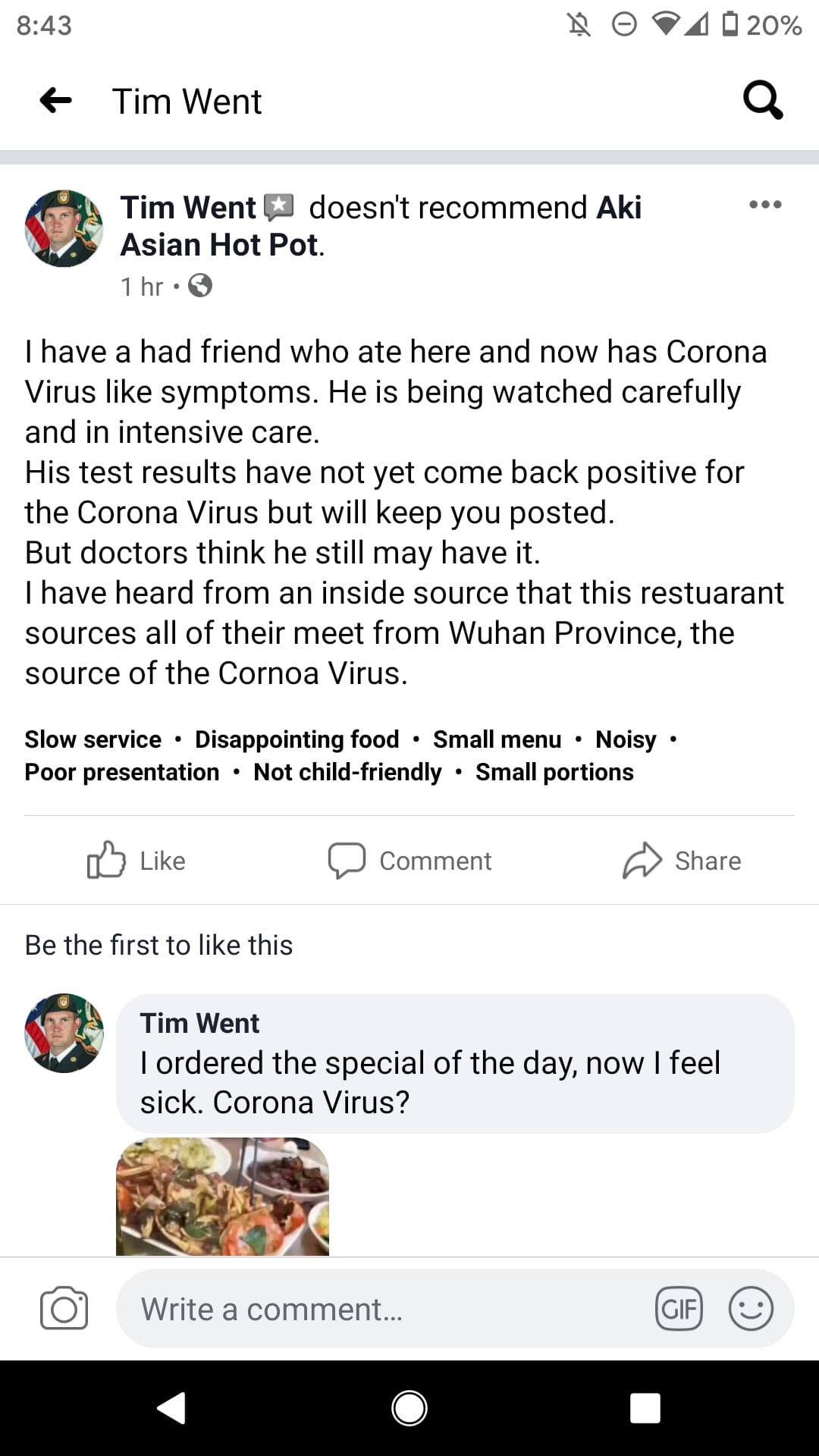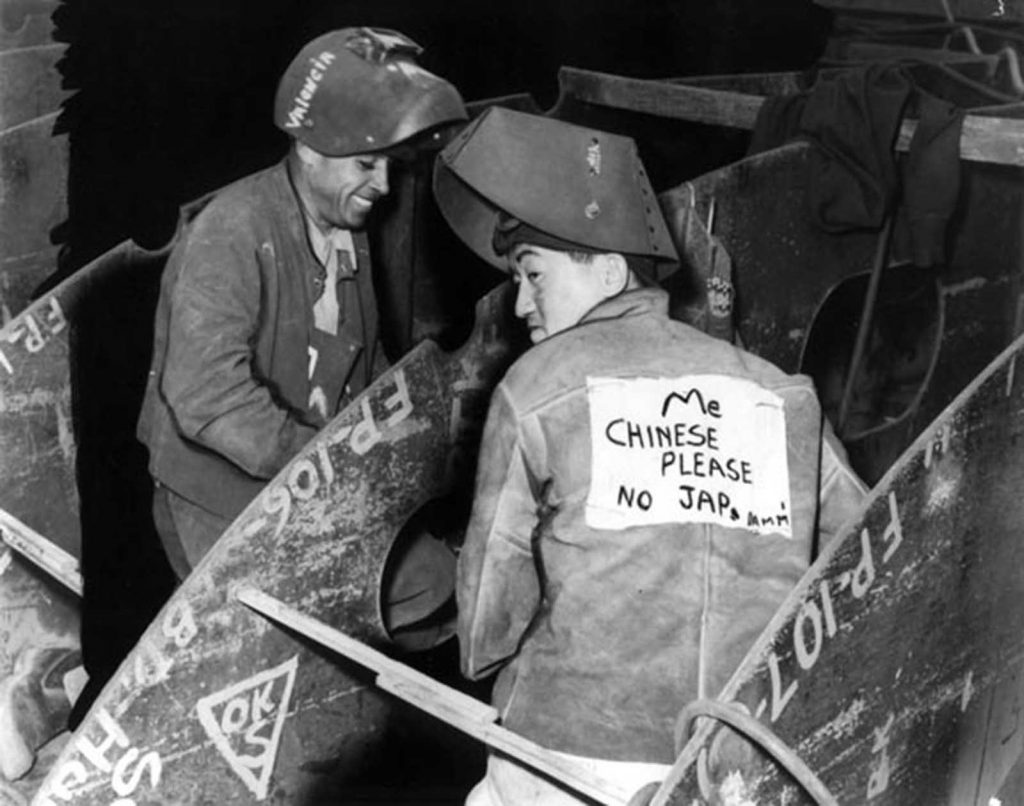
11 Feb Fear fuels the fire
The coronavirus outbreak that started in Wuhan, China has become a worldwide crisis, and the virus is serious business – both figuratively and literally.
Because the world economy is interlinked and interdependent, a disaster in Asia can have ripple effects across the globe’s financial markets. As countries including the United States cut back travel to China and block people from coming from China, the US stock market’s been battered by the effects of the coronavirus. Many American companies have offices in China and rely on companies there to keep its supply chains moving.
As I write this, there are more than 42,000 confirmed cases of illness caused by the coronavirus just in China, with over 1,000 deaths in the country. The virus, which has now been named COVID-19, causes symptoms similar to flu or pneumonia, and has affected almost 400 people in 24 countries outside China (with one death in the Philippines). The US Centers for Disease Control and Prevention so far has confirmed 13 cases in the US as of this writing, with no deaths.
Authorities are predicted that the virus is already spreading exponentially, and efforts are underway to find ways to treat and prevent COVID-19. In China, over 2,000 cases were reported in one day and 108 died in one day. The word “pandemic” is being mentioned as a possible outcome of the spread of coronavirus.
So there’s no doubt about it, the coronavirus is serious and deadly, and the entire world is being extra cautious about preventing an outbreak outside of China. You can read the latest updates from the Center for Disease Control and Prevention.
I don’t fault countries, including the US (and Japan) from limiting or blocking travelers from China. Until there’s a scientific medical solution to treat and prevent the virus, one way to control is spread is, well, to control the spread of the people who may be carrying the virus.
Unfortunately, along with the spread of the virus, one side effect has been the spread of fear that can fuel the fires of prejudice. It’s one thing to be afraid of people from Wuhan, or even mainland China, who may have been exposed to the virus. It’s another altogether, to treat Chinese in the US, including Chinese Americans who were born and raised here and haven’t gone to Wuhan or even to China recently, as pariahs who might be carrying the illness.
They’re not. Neither are other Asian Americans and Pacific Islanders.
And yet, the media have run stories about how AAPIs are being treated as if they’re all Chinese who are “fresh off the boat” from Wuhan. The New York Times ran a commentary about how Chinese restaurants are being subjected to outdated tropes – fake stereotypes – about serving meat that might have been the cause of the virus in the market in Wuhan. You know, rats, bats, wolves….
The mayor of Philadelphia dined at a restaurant in the city’s excellent Chinatown district last week to show support for the Chinese American community. I hope other cities’ mayors and celebrities do the same.
It’s always easy to target “The Other” in times of crisis when fear is clouding our societal judgment.
I’ve had Asian American friends on social media tell me that they’ve sat down at a café, or a station, or a library, only to have people around them pick up their things and move away. And these friends aren’t all of Chinese heritage, not that that matters. It happened to a Japanese American woman in Washington, D.C. Shame on you, people. Do we need to shout out, “I’m not Chinese from Wuhan!” or “I’m Japanese American!” to show we’re not Typhoid Mariko?
Someone posted fake comments on the Facebook page of a Denver-area Chinese restaurant that claimed he felt sick after eating there, and wondered if he got coronavirus (screen capture at top). Facebook removed the comments and the user.

This all reminds me too much of World War II-era photograph of a young Asian girl heading to school, with a big sign pinned to her blouse reading, “I am Chinese.” I have to wonder if she was bullied anyway. There are other images from that time: It was a common sight to see Chinese Americans identifying themselves during the war, when 120,000 people of Japanese ancestry including half of whom who were US-born American citizens, were imprisoned in US concentration camps.
Of course, there were no instances of espionage or sabotage proven by any JAs during the war.
But in times of crisis, fear fuels the fires of prejudice. Even in our “politically correct,” “post-racial” world, that prejudice seethes and simmers just below the polite surface. Scratch just a little bit, and it’s there. So if you’re “The Other,” and you so much as look Asian or serve any kind of Chinese food, you could have been singled out as a spy during WWII, or as a virus carrier today.
Let’s let the authorities fight the coronavirus with science, and not bring our baser instincts of fear and loathing to the surface.
NOTE: This post was originally written as a column for the Pacific Citizen, the national newspaper of JACL. The numbers of people who were sick and who had died at the time I wrote it was still small. It’s exploded now, and the seriousness of the outbreak has become even more critical.



